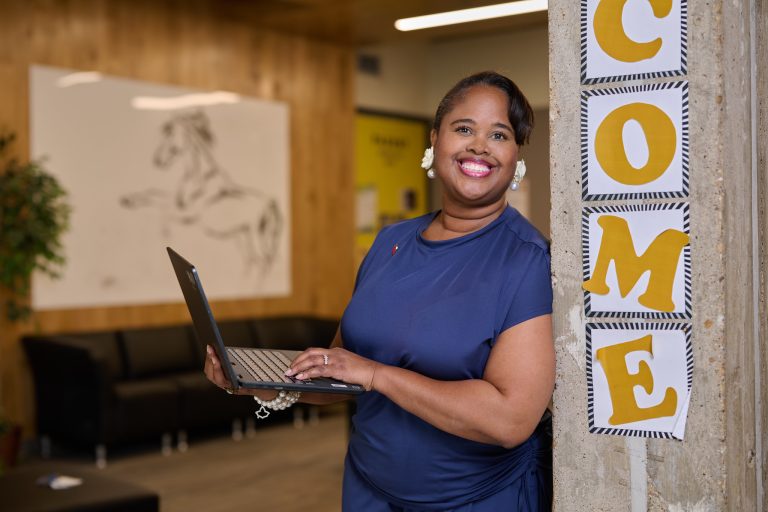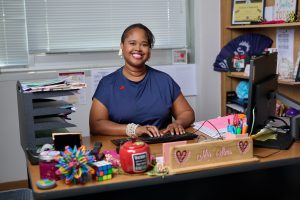Being a middle school counselor can be a juggling act between providing social-emotional support and academic guidance to students at challenging ages, but Yolanda Sims, counselor at Piedmont G.L.O.B.A.L. Academy, mastered the task.
“In middle school, students are at an impressionable age, trying to find their way,” she said. “They are too old to be coddled, but they want to know that you care and that you are a safe person to talk to. The goal is to make sure that if they are OK emotionally, they will be OK academically in the classroom.”
She still remembers her middle school counselor, who was a safe person to her in those years, who encouraged and motivated her. While she doesn’t recall what it was for, she still vividly remembers that the counselor gave her an award her mother still has and how that award made her feel.
“We lived in San Francisco at the time, and it was a ceremony in the theater at a university,” she said. “It made me feel seen and appreciated. Kids want to be heard, want to be seen, want to feel that they belong.”
She said she wanted to be that safe person who was there for other children, so she went back to school to get a master’s degree in counseling.
“It’s important to students to have a safe person they can talk to because they don’t open up to just anyone,” Sims said. “You have to build relationships by having one-on-one meetings where you ask them how they are doing, who they hang out with, what they want to be when they grow up, what they are thinking about.”
Having quick check-ins in the hallways is just as important, she said, so she makes sure she is out and about during passing time to say a quick word to students, especially if she knows there is a student who is having a hard time.
“If we can help students learn how to socialize, make friends and have healthy relationships, especially in middle school, if they are happy at school, that impacts how they do academically, so we do have an impact in academic performance,” Sims said of the role of counselors.
Sims also makes sure that students at Piedmont are college ready by keeping up with their academic success. If they are not passing classes, she will meet with them to find out why. Because she has established herself as a safe person to talk to, students will often reveal they are having a hard time understanding but are too shy to say so in class. She’ll act as a buffer. Sometimes, there are external factors, and she will work with the school’s parent support specialist, Daniela Alaniz, to find resources.
“I tell students it’s OK to feel what you are feeling, but don’t let your emotions control you. If you need to release what you are feeling, come in here,” she said, making a sweeping gesture in her classroom. “It goes for adults, too. I had a teacher who was stressed out at the beginning of the year who came in here. We talked it out; she had a good cry and released that tension. It’s a safe place.”
When it comes to her own feelings, her husband, Mark, who graduated from H. Grady Spruce High School is her safe person. Sims uses her drive home to process her day, and then talks to her husband.
“Sometimes some of the things I hear, that students are going through, are hard to process, and I have to close my door and shed a tear myself” she said. “But I think that empathy is what makes us good counselors.”


